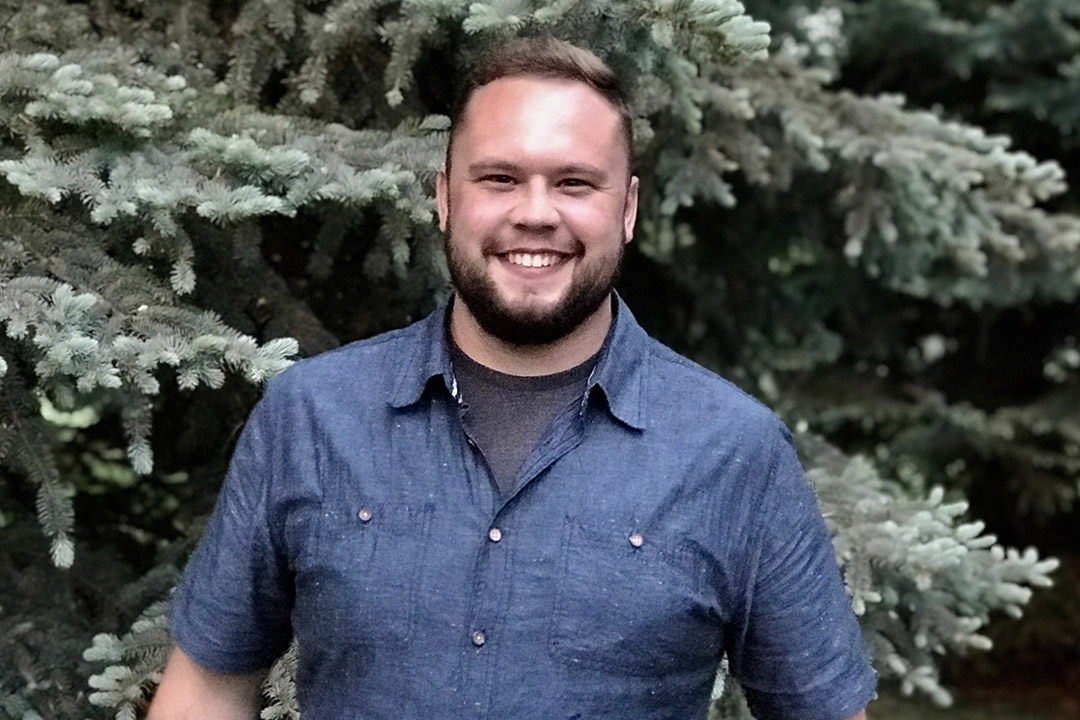
#UsaskConvo: Q & A with U of S graduating student Zachary Person
While close to 3,700 students are expected to cross the stage at TCU Place to receive their degrees at Spring Convocation from June 4-7, every U of S graduate has their own unique story.
This Spring, Zachary Person, 24, is graduating with a Bachelor of Science in Agriculture, majoring in environmental science. This fall he will begin a master’s degree at the U of S in environment and sustainability, under the supervision of Colin Laroque.
Why did you decide to continue your education and obtain a master’s degree?
After obtaining an Environmental Science Major with my Agriculture Degree, I was very intrigued in pushing my knowledge further, especially regarding sustainability issues locally and globally. These issues are very large and diverse, and trying to solve them involves unique research and advanced problem-solving skills.
Overall, how was your U of S experience?
My experience at the U of S was very educational, fulfilling and well-rounded. I transferred from Lakeland College after receiving a Diploma, hoping to finish my degree and get into the work-force. I ended up running into some great professors at the university that involved me in using some unique scientific tools to conduct research, mainly the Canadian Light Source. This research sparked the need to further my education past a bachelor’s degree.
What’s something you learned at the U of S that didn’t come from a textbook?
I learned a lot of people skills, especially in the later years. There was a certain capstone class, Environment and Sustainability 401: Sustainability in Action, that involved intensive networking, numerous meetings (including one with President Stoicheff) and people-management. These are skills that only come from experience which the professors pushed for, setting up their students for success when they enter the work-force after receiving their degree.
What’s something you learned at the U of S that did come from a textbook, a lecture/lab or research?
I learned a lot about the Canadian Light Source, Canada’s only Synchrotron. I used the synchrotron to do dendrochronologic research, or the study of tree rings through time. I focused, and will continue to focus, on how mining and other human activities effect trees in certain areas due to contamination, and how that could potentially become a vector to humans and animals in that same environment. Mainly, humans growing food in tainted soils, which the trees will show you on a timeline when contamination started and how bad the contamination is.
If you had a million dollars to donate to the university, what would you want the money to be used for?
The money would go in a few different directions. I would give some full-ride scholarships to some who could not afford to pursue a degree but want to. I would also want a large amount of the money to be used for research and innovation in the environmental and sustainability sectors. I would like to see research done on new energy production (clean energy), land reclamation and restoration, and more research on the Canadian Light Source involving plant, soil and water contamination. With money put into these areas, certain departments could grow in my educational interest areas. I think this is very important as most environmental problems are so large and they are not being dealt with due to a lack of research and knowledge.
What did you learn about yourself during your time at the U of S?
I learned that hard work and dedication can go to great lengths and result in good marks. I achieved and succeeded in some things that I could have never imagined, including conducting research on the Canadian Light Source and leading a group of 28 people. When you find the areas you care about, it is not hard to dedicate time and effort into studying and finishing schoolwork, and enjoy the things learned from it.
What advice do have for new students just starting university?
To new students, show up to class, take notes, study a bit every day, but do not be afraid to give yourself time off. There is a very particular balance that is needed in university to excel. Also, never be afraid to question everything. Lastly, do not be afraid to change your educational pathway if you are not liking what you are doing, you are not the only one to feel that way.
University can be stressful, how did you look after your mental health while at university?
Spending time going out with or studying with friends is a great way to relax while in university. Taking walks, finding a good show to binge-watch, or taking electives you are passionate about are also some good tips to keep your head above water in school. It also helps to keep an organized schedule and finish work early, so that during midterms and finals your main focus can be the exams.
Join us as we celebrate all those who receive their degrees during Spring Convocation. Share your moments using #UsaskConvo.
Article re-posted on .
View original article.

